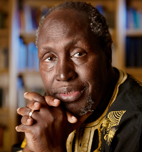The topic of translated literature was touched on a few weeks ago, with the recommendation of Patrick Süskind’s Perfume. There are many great texts written around the globe to which we have no access unless we can read and understand the language fluently, or can benefit from the work of a skilled translator. We would be poorer without having read the works of Gustave Flaubert, François Mauriac, Albert Camus, Günter Grass, Thomas Mann, Miguel de Cervantes, Gabriel García Márquez, Haruki Murakami, just to name a few in a fairly random selection. But literary translation is difficult; lexis and imagery is full of nuance and different languages have different grammatical structures, making complete replication very challenging.
The International Booker has just announced its longlist for the international fiction prize, which depends on the work of translators. While the translators are often overlooked, the prize acknowledges them as well as the authors. It was discussed recently on the BBC’s Front Row, with some interesting insights into the creativity of translation. Listen here.
While in this older programme, novelist Naomi Alderman discusses the art of translating fiction with Ian McEwan, AS Byatt, Ali Smith and David Baddiel, and joins three translators tackling Jules Verne.
 As students of post-colonial literature will know, choosing your language when you have more than one available is both an artistic and a political choice. Arundhati Roy was criticised for writing The God of Small Things in English rather than a Keralan language, and after his early novels written in English, Ngũgĩ wa Thiong’o decided to write only in Gikuyu, his Kenyan language. Interestingly, that caused problems for him in Kenya, as the wider population in his home country could now read his politically charged novels. He is one of the writers on the Booker longlist, but would bag the whole prize if he won, as he is his own translator. Read about his novel, as well as the other works on the list, here.
As students of post-colonial literature will know, choosing your language when you have more than one available is both an artistic and a political choice. Arundhati Roy was criticised for writing The God of Small Things in English rather than a Keralan language, and after his early novels written in English, Ngũgĩ wa Thiong’o decided to write only in Gikuyu, his Kenyan language. Interestingly, that caused problems for him in Kenya, as the wider population in his home country could now read his politically charged novels. He is one of the writers on the Booker longlist, but would bag the whole prize if he won, as he is his own translator. Read about his novel, as well as the other works on the list, here.
Sometimes, translation is enforced, which is clearly problematic since cultural identity is embodied in the language we speak. For an exploration of these issues, read Brian Friel’s play Translations, set in mid-nineteenth century Ireland, when the Ordnance Survey was creating new maps of the country and changed many of the place names into English.
If you get seriously interested in matters of translation, read After Babel by George Steiner – a fascinating book.